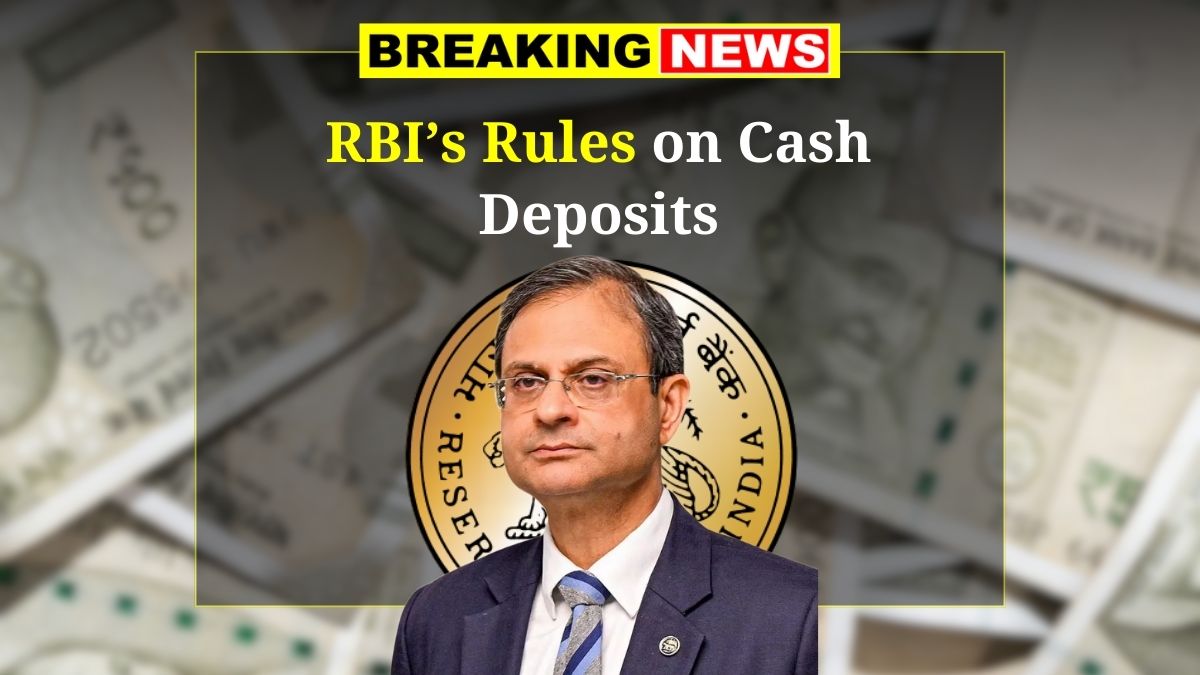Cash Deposit Rules – If you have a savings account in a bank—and almost everyone does—you should know there are certain rules around how much money you can deposit or keep in that account. Whether you’re a salaried employee, a freelancer, a shop owner, or someone running a small business, knowing these cash deposit rules can save you from unnecessary trouble with the Income Tax Department or the Reserve Bank of India.
Most of us think of a savings account as a safe place to park our money. It helps with everyday transactions and allows us to earn a bit of interest. However, there are some limits you should keep in mind when it comes to depositing cash into your account. These rules have been put in place to prevent illegal activities like money laundering, and to ensure that financial transactions stay transparent and traceable.
What is the Maximum Cash Limit in a Savings Account?
The Reserve Bank of India (RBI) has not exactly set a cap on how much money you can keep in your savings account, but large cash deposits can raise red flags. As per current guidelines, if the total deposits in your savings account go beyond Rs 10 lakh in a financial year, that transaction will be reported to the Income Tax Department.
This doesn’t mean you’ll automatically be taxed or penalized. It simply means that such transactions fall under what’s called the Annual Information Return (AIR). Banks are required to report these high-value transactions, and you might be asked to explain the source of the funds if your income does not align with the amount you’ve deposited.
So, if you receive a large sum of money—perhaps from selling property, receiving a business payment, or any other source—it’s essential to maintain clear records and be ready to justify the transaction if asked.
What About Current Accounts?
For those who operate a business and use a current account, the rules are a bit different. In a current account, the reporting threshold is higher. If your deposits exceed Rs 50 lakh in a year, it will be flagged. Again, this doesn’t mean it’s illegal, but it does mean you should have proper documentation about where the money came from.
PAN Card Requirement for Large Transactions
The use of your PAN (Permanent Account Number) becomes mandatory when you are dealing with large amounts of money. For example, if you deposit Rs 50,000 or more in a single transaction, you need to provide your PAN details. The same applies if your total deposits over a period exceed certain limits.
Having a PAN helps banks and government authorities track financial transactions and reduce tax evasion. If you don’t have a PAN linked to your account and you carry out large transactions, your bank might refuse to process them or ask for immediate compliance.
Why Does the Income Tax Department Get Involved?
The involvement of the tax department doesn’t mean you are guilty of anything. But they do keep an eye on large cash movements, especially if they appear unusual when compared to your regular income. If your savings account sees cash deposits that are much higher than your declared earnings, expect a query.
To stay safe, keep a proper record of your earnings, especially if you’re self-employed or earn from multiple sources. Having invoices, receipts, or any documented proof will help if you are asked to explain your cash deposits.
Better Ways to Use Your Idle Cash
If you have a large amount of cash that you don’t need immediate access to, there are smarter ways to manage it than just letting it sit in a savings account. Many banks allow you to convert extra funds into a fixed deposit directly from your savings account. This way, your money earns more interest, and you still have access to it when needed.
A savings account is a useful tool for managing your day-to-day expenses, but it’s important to stay aware of the rules that come with it. Be mindful of how much cash you deposit, and make sure all your large transactions are backed by proper documentation. Always use your PAN card when required, and consider putting idle money to better use through fixed deposits or other financial products.
Being aware of these rules doesn’t just help you stay out of legal trouble—it also makes you a more responsible and informed account holder.




